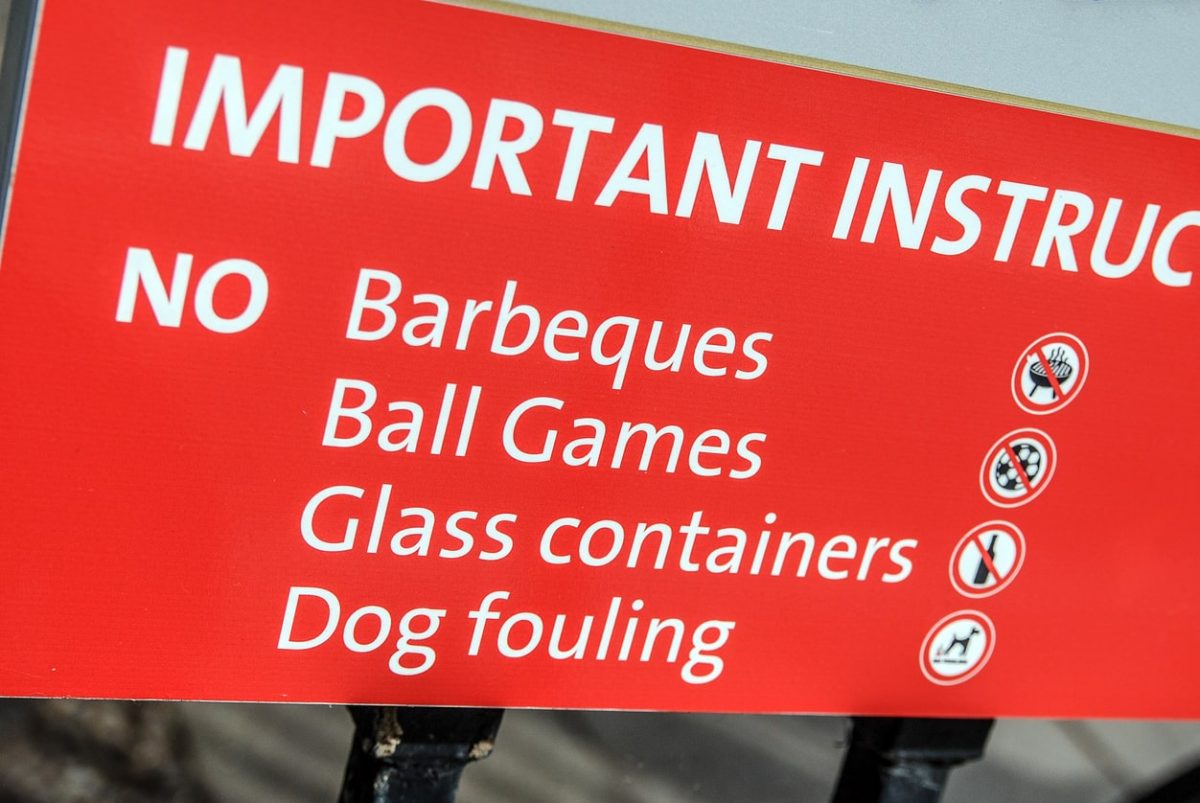
Some homeowners associations’ governing documents may limit the use of owners’ units through use restrictions, such as limiting the number of overnight guests to a specific number or how many cars can be parked in front of a home at one time.
Are these rules permissible? Can they be enforced legally? It’s important for HOA boards and their members to look at the possible risks of trying to enforce HOA members from doing certain things in a community or to their property.
Common, but Enforceable?
User restrictions in HOA communities may be common, but sometimes homeowners within a community may believe them to be somewhat vague or up for interpretation. Much like trying to enforce the number of overnight guests or walking dogs or the age of swimmers in the community pool, some restrictions are unenforceable.
Some restrictions may be too restrictive because they violate certain laws, such as fair housing laws. Use restrictions may not be enforceable depending on where an HOA is located in the country based on certain governing documents. If a restriction is seen as unreasonable by the homeowner, if it’s written into the original documents, they are deemed enforceable in some states. But for certain rules, a board has to have due authority to enact them, and they must be reasonable, which can be subjective.
Additionally, if rules and restrictions are looked at as discriminatory in any way, they are usually unenforceable. The moment a rule is seen as discriminatory, or giving favor to one person over someone else based on things like race, color, sex, religion, or sexual preference, there could be the potential for a lawsuit related to fair housing laws.
Regulating Realistically
Restrictions may be hard to enforce in some areas, but they can still bring value to an HOA. Parking restrictions and limiting guests may be hard to enforce and document, as well as prove unless an HOA has 24-hour surveillance. But they can be used as a deterrent, especially in HOA communities with areas of high density. This would help keep as many parking spaces open as possible and keep traffic low in a neighborhood.
What’s more, HOAs should be focused on discouraging certain behaviors or choices from taking place to avoid major claims of harassment by members or even claims related to break-ins and other crimes. If certain rules are not communicated to members, then this could open the door to potential liabilities due to not educating members of overnight guests who may bring someone into the community who has ill intent. Certain HOA crime insurance coverages can help protect properties from being stolen or compromised in an HOA, but the goal should be to keep crime away from not only an association but the community as a whole.
Some HOAs choose to regulate the discernible results of the kind of behavior they want to keep from happening in their communities. If a small number of parking spots are available, for example, it can be enforceable to limit guest parking spots and then bring fines against guests who park in tenant-only spaces. By focusing on curtailing behavior instead of solely focusing on enforcing restrictions, HOAs can encourage better choices from members as well as possibly cut down on legal claims.
About Kevin Davis Insurance Services
For over 35 years, Kevin Davis Insurance Services has built an impressive reputation as a strong wholesale broker offering insurance products for the community association industry. Our president Kevin Davis and his team take pride in offering committed services to the community association market and providing them with unparalleled access to high-quality coverage, competitive premiums, superior markets, and detailed customer service. To learn more about the coverage we offer, contact us toll-free at (877) 807-8708 to speak with one of our representatives.


